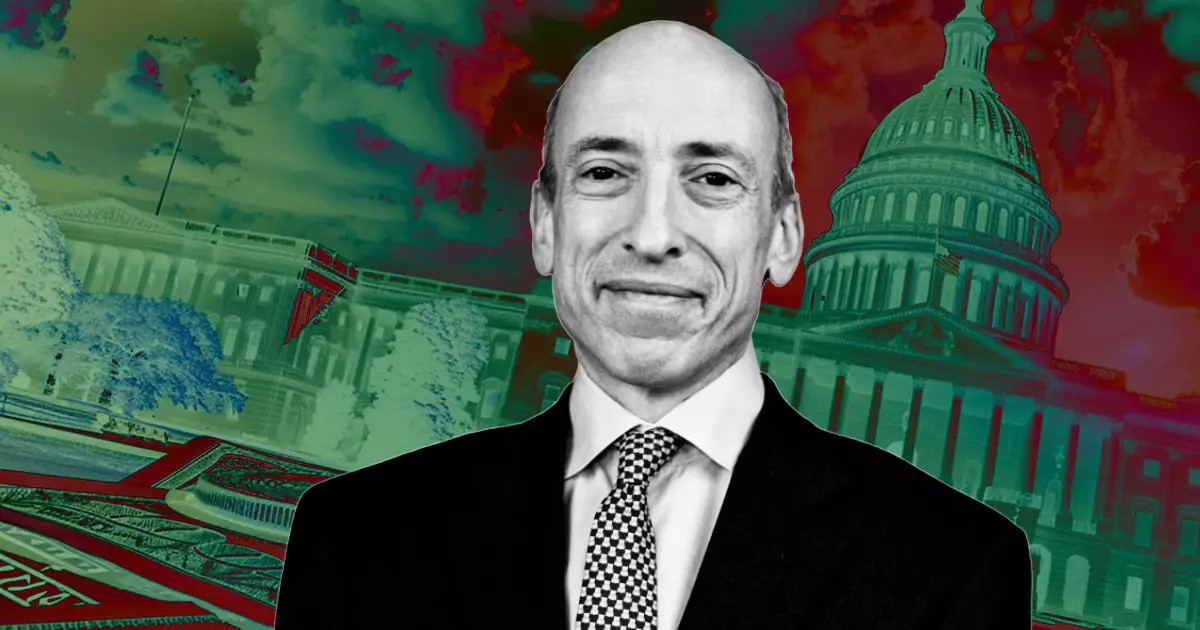The Financial Innovation and Technology for the 21st Century (FIT21) Act has been a subject of significant debate and controversy within the cryptocurrency industry. Despite being hailed for providing regulatory clarity, the Chairman of the US Securities and Exchange Commission (SEC), Gary Gensler, has expressed strong opposition to the bill, citing concerns about its potential impact on consumer protections in the market.
Gensler’s Dissent
Gensler has raised several key points of contention with the FIT21 Act. He argues that the bill could create regulatory gaps that would jeopardize decades of oversight in the investment contract space. By allowing blockchain-based investment contracts to be classified as decentralized and self-certified by issuers, the bill could effectively remove them from SEC oversight, putting investors and capital markets at risk.
Moreover, Gensler criticizes the bill for abandoning the Howey Test, a widely recognized method for determining if an investment qualifies as a security. He warns that this could lead to reduced protections for investment contracts that are considered securities, exposing investors to greater risks. Additionally, he highlights the dangers of excluding crypto asset trading platforms from being classified as exchanges, further exacerbating the regulatory challenges in the industry.
Despite Gensler’s opposition, the FIT21 Act enjoys strong support from the US Congress and the crypto community. Congressman French Hill, the Chairman of the Subcommittee on Digital Assets, Financial Technology, and Inclusion, has emphasized the importance of the bill in providing adequate securities to protect against potential market risks. Several prominent crypto companies, including Coinbase, Circle, Kraken, Gemini, and advocacy group Stand With Crypto, have also endorsed the legislation, underscoring the perceived benefits of regulatory clarity for the industry.
The Crypto Council for Innovation (CCI) has echoed these sentiments, stating that while the FIT21 Act may introduce new compliance challenges for digital asset companies, it ultimately represents a more responsible and safer approach for consumers compared to the existing regulatory landscape. The bill seeks to strike a balance between fostering innovation and ensuring investor protections, a delicate balance that has been a point of contention in the ongoing debate.
As the FIT21 Act faces a crucial vote in the US House of Representatives, the White House has indicated that it does not plan to veto the bill if it passes, despite expressing opposition to certain provisions. The administration has signaled a willingness to collaborate with Congress to establish a comprehensive regulatory framework for digital assets, suggesting a potential path for addressing some of the concerns raised by Gensler and other critics.
The outcome of today’s vote on the FIT21 Act is expected to have far-reaching implications for the cryptocurrency industry and its participants. The bill represents a pivotal moment in the ongoing evolution of crypto regulation in the United States, with both supporters and detractors closely watching the legislative process unfold.
The controversy surrounding the FIT21 Act underscores the complex and nuanced challenges inherent in regulating the rapidly expanding crypto ecosystem. While the bill aims to provide much-needed clarity and oversight, the concerns raised by Gensler and others highlight the importance of carefully balancing innovation with investor protection in this dynamic and evolving industry. The outcome of today’s vote will shape the future trajectory of crypto regulation in the US and set a precedent for how digital assets are managed and monitored going forward.
















Leave a Reply